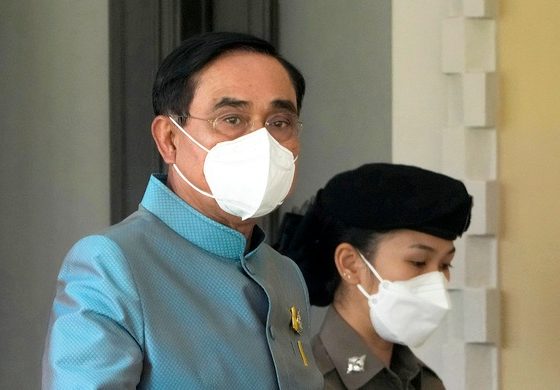Thailand’s Constitutional Court ruled on Sept 30 that Prayut Chan-ocha’s premiership has not reached its eight-year limit and he can continue as the country’s prime minister.
The court ruled in a 6-3 decision that the 68-year-old prime minister’s 8-year term limit should be counted from April 6, 2017, when the current constitution took effect, meaning his term will last till 2025.
The decision came after the suspension of Prayut’s premiership in August, following a petition filed by the opposition parties for a ruling on when his 8-year tenure should conclude after he first became prime minister on Aug 24, 2014.
Prayut’s supporters said the eight-year tenure should be counted from 2017, or even from 2019, when Prayut assumed the premiership after the general election.
Prayut has remained as defence minister since his premiership was suspended while Deputy Prime Minister Prawit Wongsuwan served as acting prime minister.
Prayut said on his Facebook page that he respects the court’s ruling and thanked his supporters.
The one-month period of suspension provided him an opportunity to reflect on himself and made him realize the need to spend the limited valuable time that his government has in pushing forward important infrastructure projects he has initiated for the country’s prosperity and the future of the children, said Prayut. He said “no other government” had initiated or implemented projects on such a large scale and in such an integrated manner.
“The court decision was not surprising to anyone,” said Titipol Phakdeewanich, dean of the faculty of political science at Ubon Ratchathani University in Thailand.
Titipol said that it is expected that the opposition parties will criticize the result but it will not lead to a big protest because the main focus for them now will be the election next year.
Thailand’s next general election is expected to be held on May 7, 2023, according to a tentative schedule announced by the country’s election commission.
“If we have a big political protest, that might give a pretext for military intervention like what we have seen in the past,” said Titipol.
More than 300 police officers were deployed around the Constitutional Court on Sept 30 to maintain peace and order. The court and its offices have been declared restricted areas until 6am on Oct 3.
Anti-government rallies were held in Bangkok’s central business district on Sept 30.
About 10.12 percent of people favored Prayut as the political figure most suitable to be the next prime minister, according to an opinion poll conducted between Sept 15-21 by Thailand’s National Institute of Development Administration.
Supporters said he is an honest and genuine person who had led the country in peace with policies that can benefit the people.
Now that Prayut knows his premiership eligibility has only about two years left, Termsak Chalermpalanupap, visiting fellow at the Thailand Studies Programme of the ISEAS–Yusof Ishak Institute in Singapore, said he expects the retired general to be less ambitious, especially with his political clout weakened after the suspension.
“One big question now is whether he wants to soldier on and accept another nomination for the next premiership in the next general election,” said Termsak. “And another related question is: which party will nominate him?”
Noting the tentative election schedule is set based on the assumption that the House of Representatives completes its full four-year term which ends on March 23 next year, Termsak said people are looking forward to an early election.
Napisa Waitoolkiat, a political scientist at the Naresuan University in Thailand, said she does not expect to see many changes in Thailand’s political landscape in the near future but believes that the youth groups have become much more vigilant.



